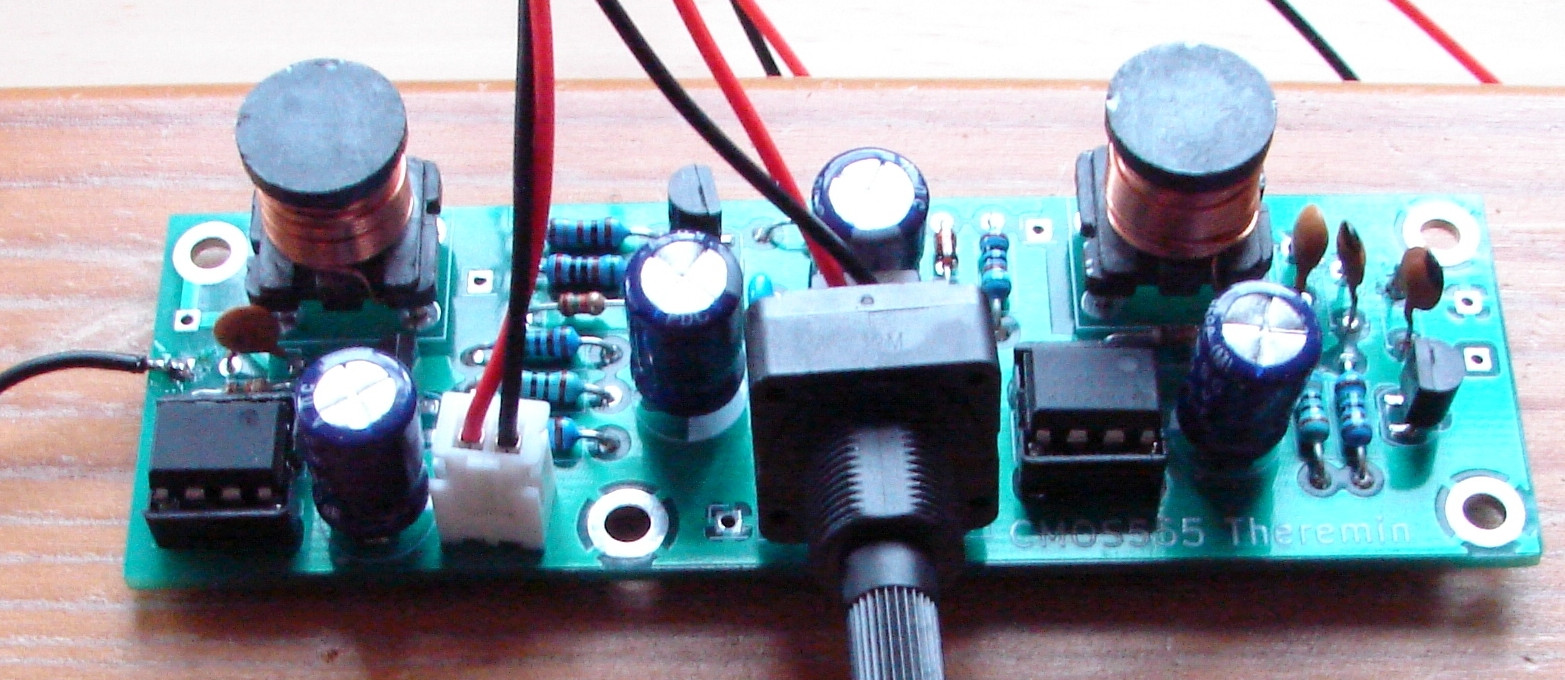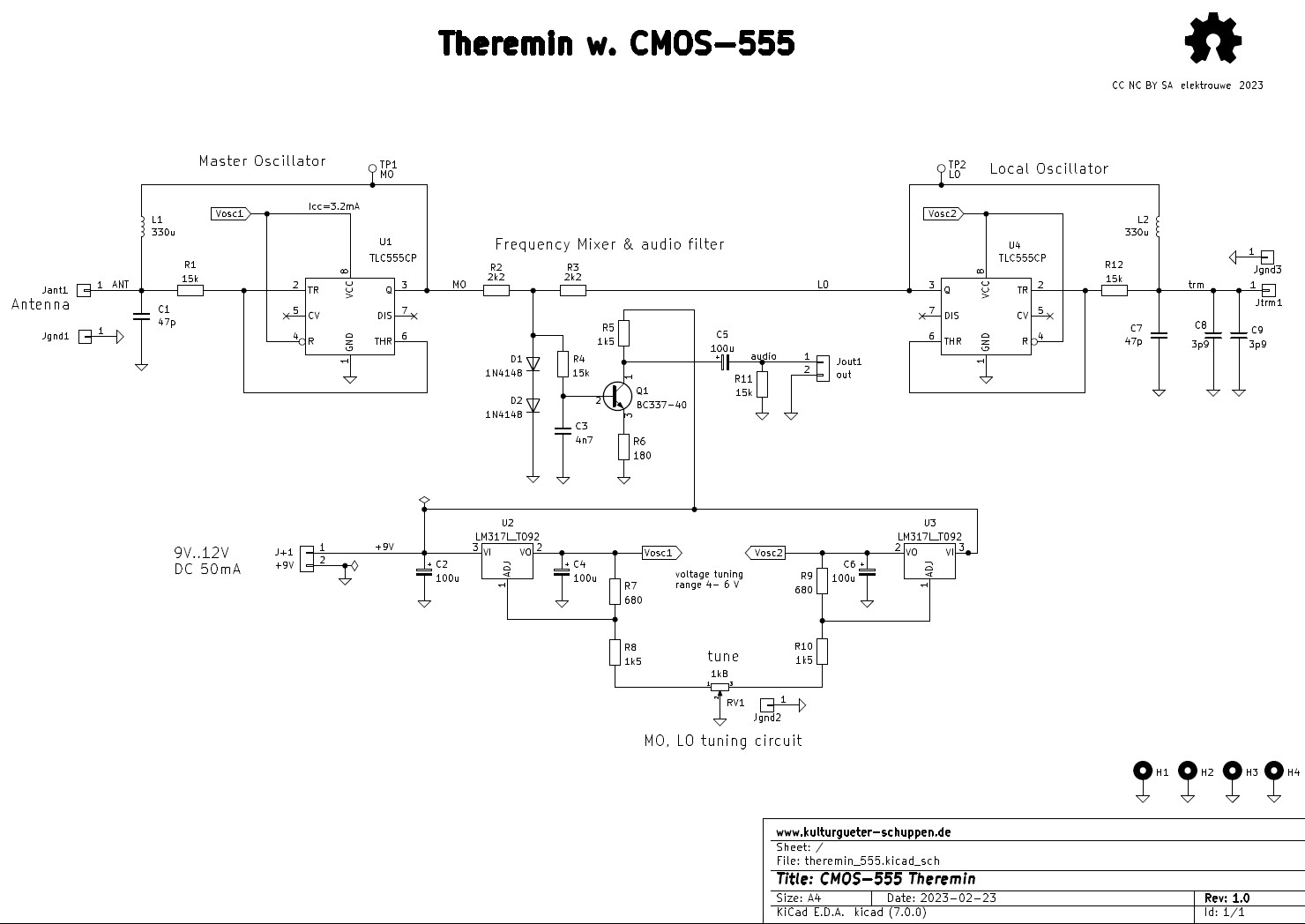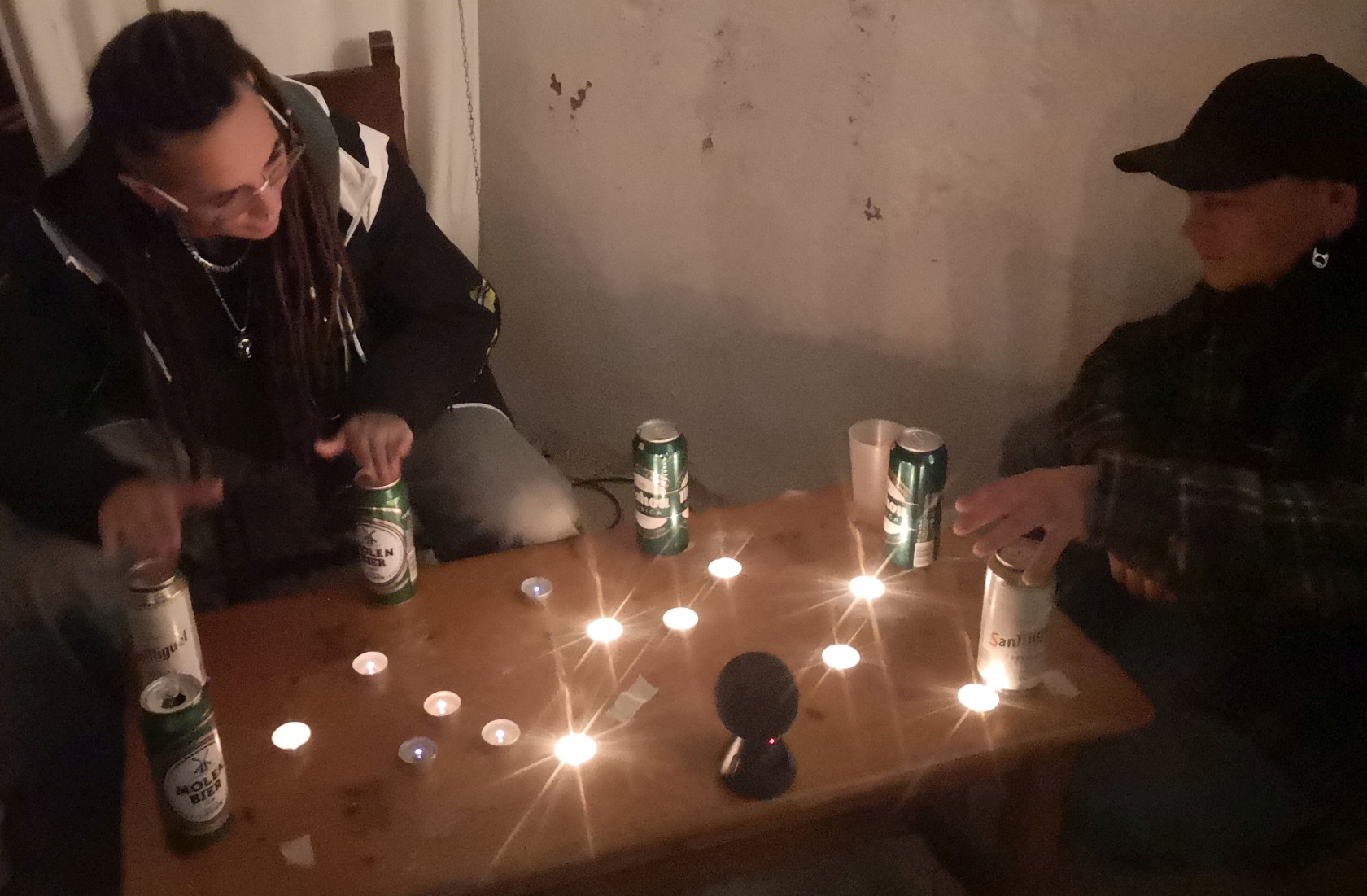CMOS-555 Theremin
My friend Wolfgang Dorninger asked me for a recommendation for astudent Thereminworkshop workshop. He wanted a cheap and beginner friendlysuitable DIY Theremin kit. He sent me 4 links and I should choose mythe favorite.best one for him. After watching a Youtube video and listening to sound examples ,examples, I came to the conclusion that all of them were either not playable, ugly sounding, not DIY friendly or too expensive and decided to design my own Theremin for him with these specs :
- about 10€ for PCB + components to be affordable for kids
- low part count for beginner friendly assembly during a 1h workshop
- standard components still in production, no programmable or obsolete parts
- simple standard
inductorscoils forcoilsoscillators - tunable pb potentiometer
- no variable
capacitors. inductorscapacitors or otheradjustabletrimmable partsbeside pitch control - simple
operationto play with pitch onlyaantennapitch antennaand - playable distance range of at least 50cm
Well, I underestimated the effort to realize this "small" project. It took me 6 prototypes until I was satisfied with the result. Here it is :
circuit description :
Master and Local Oscillator are Schmitt-Trigger LC-oscillators. My design winner uses only a TLC555CP CMOS timer, a series LC tank, and a resistor. I once got an industrya donation of hundreds of 330uH coils, so I had to use themthem, (but I guess that any 330uH with low DC resistance (<1Ohm) will work here).here. Due to the DC coupled feedback path via L1, this kind of oscillator always starts up reliably.after R1power setsup or touching the antennaantenna.
R1 amplitude and protectsisolates U1 from thishigh highantenna voltage (>=150V).150Vpp) and controls amplitude. Higher values are not recommended because U1 has to deliver more current to get higher antenna voltage.
Local oscillator U4 uses 2 (empiricaly found ) 3.9pF capacitors instead of the antenna. For different antennas - I use FM radio telescope antennas meanwhile - other values might be needed.
D1 and D2 are mixing both oscillator frequencies and provide 1.2V bias for a transistor amplifier Q1 with a gain of R5/R6. LopwLow pass filter R4,C3 keeps RF away from line level audio out.
Voltage regulators U2, U3 have a double function. They isolate both oscillators with separate power supplies which prevents locking of the 2 RF frequencies, which would result in zero0 Hz audio output.output This adresses- a problem from which all "single chip"chip oscillatordual pairsoscillatorTheremins suffer.suffer from.
The second function is voltage tuning of both oscillators. With a supply range from 4..6V, the 1.5MHz oscillators can be detuned by about +- 10kHz. tuningTuning range can easily be doubled by increasing one oscillators supply voltage while decreasing the otherother. oscillators supply voltage.
1k potentiometer RV1 has a grounded wiper and acts as 2 variable resistors to set the 2 supply voltages.
Meanwhile (May 2023) almost 3050 CMOS-555-Theremins were successfully built in DIY workshops in Austria, SpainSpain, Switzerland and Germany.
Some funny applications :
"Beeremin" an interactive sound installation with 3 CMOS-555 Theremins and beer cans as antennas for both oscillators performed by visitors of the Mappa de Ruido Noise Festival 2023, Mallorca :
prepared CMOS-555 Theremin by Ralf Schreiber : electromechanical treatment of antenna and coils with aluminium foils :



